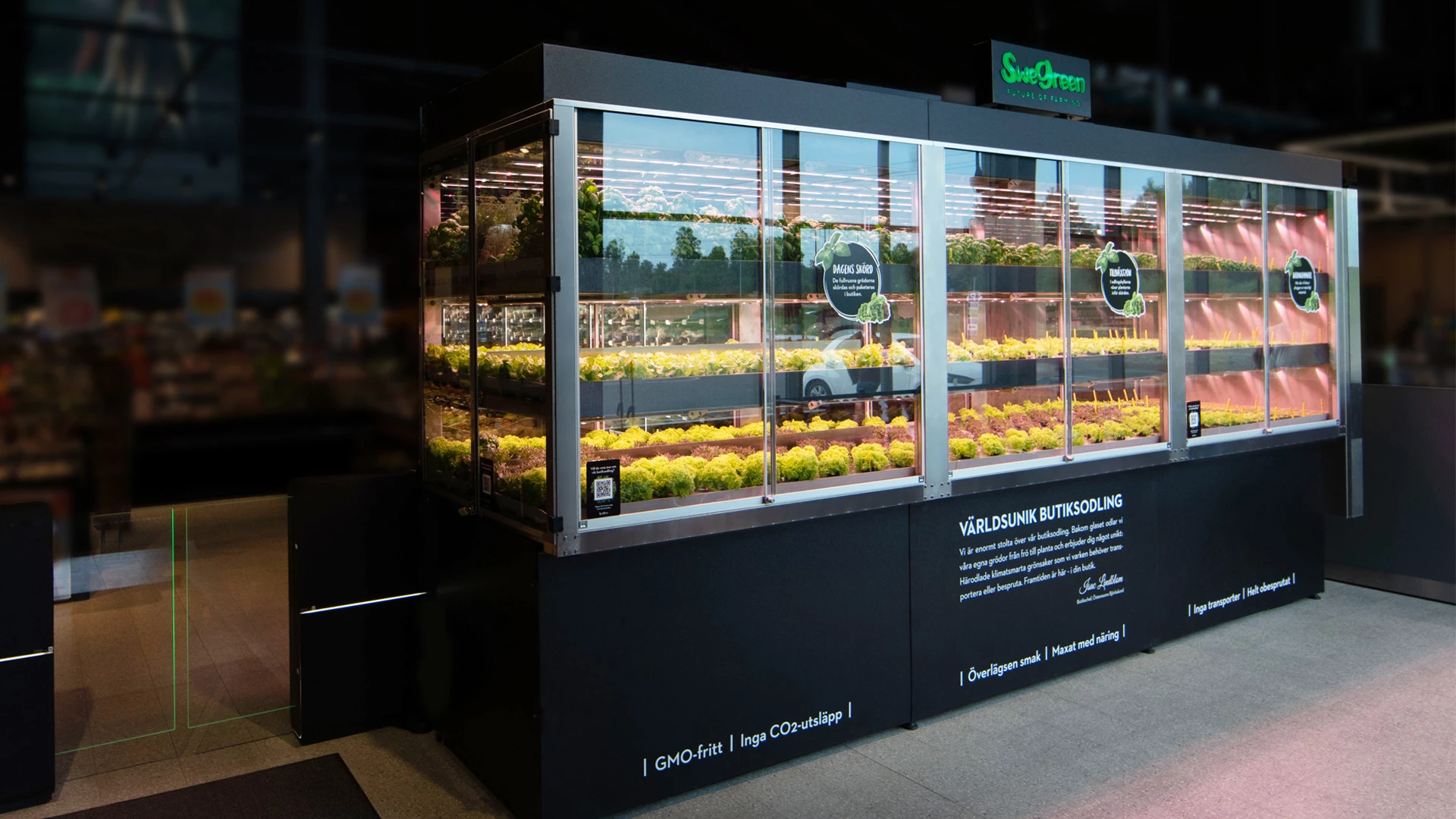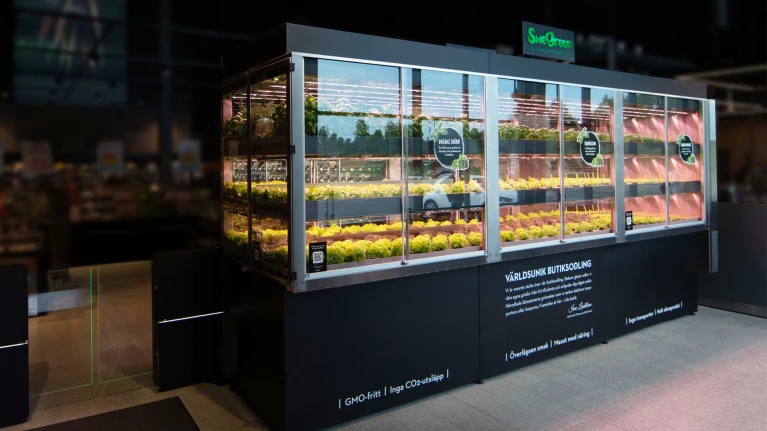Four global industry records in efficiency and sustainability for Swegreen
We are proud to announce that we have exceeded both industry sustainability records and sector efficiency benchmarks.
Recently, a life cycle analysis (LCA) of Swegreen’s latest cultivation platform, SAGA, was published by Michael Martin, a professor of sustainability at KTH. The analysis is part of a master’s thesis project in collaboration with the Royal Institute of Technology (KTH) and the Swedish Environmental Institute (IVL).
Swegreen’s achievements include the following
World record for the lowest CO2 emissions per kilogram of produced lettuce.
The lowest energy consumption (measured in kWh per kilogram) for lettuce production (using the Swedish energy mix).
Unbeatable water consumption figures (approximately 1.3 liters of water per kilogram of production) within the global sector of controlled environment and vertical farming.
LCA results also reveal a remarkable production record in kilograms per square meter.
The analysis underscores our commitment to achieving the lowest possible environmental impact while enabling cultivation from seed to mature plants in environments such as retail stores, restaurants, and hotel settings, where we maximize space per square meter. These results mark a significant milestone in our ongoing efforts for sustainability and the development of the future of agriculture.


About Michael Martin, Adjunct Professor at KTH
Research Interests:
• Industrial Symbiosis
• Urban and Vertical Farming
• Life Cycle analysis
• Sustainable Food Systems
• Life Cycle Management
Michael Martin is an Adjunct Professor at KTH-SEED and works as a Senior Researcher at IVL Swedish Environmental Research Institute. MM has a Ph.D. in Environmental Systems Analysis and Environmental Management from Linköping University, which focused on approaches to quantify the environmental and economic benefits of industrial symbiosis and circular-based production in the bio-based sector using LCA.
His expertise and current work include quantitative and qualitative research methods applied to understanding the implications of sustainable consumption through the use of sustainability assessments. His research also specializes in how sustainability assessment information can be improved by and perceived through stakeholder dialogue. MM is an Adjunct Professor in the division where he is active in supervision, teach- ing and research projects. MM is also an Executive Board member of the International Society for Industrial Ecology.

